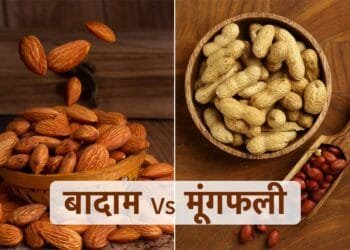Understanding Kidney Health
The kidneys are two vital organs located on either side of the spine, playing a critical role in maintaining the body’s overall health. Their primary function is to filter waste products and excess fluid from the bloodstream, excreting them through urine. This filtration process not only eliminates harmful substances but also helps regulate essential minerals and electrolytes, such as sodium and potassium, which are crucial for maintaining proper bodily functions.
In addition to waste removal, the kidneys assist in balancing fluid levels within the body, ensuring that both hydration and metabolic functions are optimized. They also play a significant role in blood pressure regulation, red blood cell production, and electrolyte balance. Given these multifaceted functions, it is crucial to maintain optimal kidney health.
Poor kidney health can lead to a range of health issues, including chronic kidney disease (CKD), kidney stones, and even kidney failure. CKD, in particular, may progress silently, producing few noticeable symptoms until the disease has advanced significantly, making early detection and prevention essential. Risk factors associated with kidney diseases include diabetes, hypertension, heart disease, obesity, and a family history of kidney disorders. Lifestyle choices, such as diet and exercise, can also greatly influence kidney health.
Maintaining healthy kidneys can be bolstered by incorporating superfoods into one’s diet. These nutrient-rich foods not only support the kidneys in performing their essential functions but may also help mitigate the risks associated with common kidney diseases. A holistic approach to diet, focusing on foods known for their protective properties, can serve to enhance kidney health, thereby promoting overall well-being. Understanding the importance of kidney function and recognizing the risks associated with kidney diseases emphasizes the need for a proactive approach to dietary choices.
The Power of Superfoods for Your Kidneys
Superfoods are nutrient-rich foods that are particularly beneficial for maintaining health and well-being. When it comes to kidney health, incorporating superfoods into your diet can be a strategic approach to enhance kidney function and prevent related issues. These foods are often packed with antioxidants, vitamins, and minerals that support bodily functions, particularly those of the kidneys.
The kidneys serve critical roles, including filtering waste from the bloodstream, regulating electrolyte balance, and managing fluid levels in the body. Superfoods such as berries, dark leafy greens, and cruciferous vegetables play an essential role in promoting these functions. Their high antioxidant content helps combat oxidative stress, which can lead to kidney damage. For instance, berries like blueberries and cranberries are rich in vitamins C and K, and their anti-inflammatory properties contribute to preserving kidney health.
Furthermore, many superfoods are low in potassium and phosphorus, making them ideal choices for those who may need to restrict these minerals due to kidney disease. For instance, cauliflower and red bell peppers are excellent options that provide vital nutrients without putting excess strain on the kidneys. These foods contain important vitamins such as vitamin A and C, which support immune function and overall health.
Incorporating these superfoods into a balanced diet not only benefits the kidneys but also enhances overall health. By focusing on nutrient-dense options, individuals can mitigate risk factors associated with kidney issues and foster long-term wellness. Utilizing the power of superfoods is a simple yet effective method to support kidney health and promote better bodily functions.
Top 13 Superfoods for Kidney Health
Maintaining optimal kidney health is essential for overall well-being, and incorporating specific superfoods into your diet can significantly enhance kidney function. Below are the top 13 superfoods known for their beneficial effects on kidney health.
Fatty Fish: Rich in omega-3 fatty acids, fatty fish such as salmon and mackerel help reduce inflammation and lower blood pressure, both of which can protect the kidneys from damage. Aim to include at least two servings of fatty fish per week for optimal benefits.
Cabbage: This cruciferous vegetable is packed with vitamins K and C and offers high fiber content. Cabbage helps lower cholesterol levels, supports heart health, and contains powerful antioxidants that are advantageous for kidney function.
Bell Peppers: Loaded with vitamins A and C, bell peppers are low in potassium, making them a kidney-friendly option. They contribute to reducing the risk of kidney stones and inflammation.
Cranberries: These berries are known for their ability to prevent urinary tract infections, which can lead to kidney issues. Rich in antioxidants, cranberries support overall kidney health.
Blueberries: Similar to cranberries, blueberries are rich antioxidants and help combat oxidative stress, making them vital in protecting kidney tissues.
Dark Leafy Greens: Vegetables like spinach and kale are excellent sources of vitamins and minerals yet low in calories. Their high fiber content assists in maintaining a healthy weight, which is crucial for kidney function.
Olive Oil: A healthy fat that can be easily incorporated into your diet, olive oil is rich in beneficial monounsaturated fats and antioxidants. It has anti-inflammatory properties that can support kidney health.
Garlic: Garlic is not only a flavorful addition but also enhances kidney function and reduces inflammation. Incorporating fresh garlic into your meals provides significant health benefits.
Onions: A staple in various cuisines, onions are low in potassium yet provide flavor and essential nutrients that support kidney health.
Cauliflower: This versatile vegetable is rich in fiber and vitamins while being low in potassium. It can be enjoyed in various forms, such as steamed or mashed, contributing to kidney health.
Egg Whites: A great source of high-quality protein, egg whites are low in phosphorus. They are an excellent option for those looking to support their kidney function while maintaining protein intake.
Arugula: As a leafy green, arugula offers essential nutrients and is low in potassium. It adds a peppery flavor to salads, making it a delicious and nutritious choice for kidney health.
Apples: Rich in fiber and vitamin C, apples are beneficial for heart and kidney health. Their natural anti-inflammatory properties can play a role in maintaining kidney function.
Incorporating these superfoods into your diet can significantly impact kidney health. Regularly including them in meals and snacks can ensure your body receives the necessary nutrients to support kidney function effectively.
Incorporating Kidney-Friendly Foods into Your Diet
Integrating kidney-friendly foods into your daily meals is a manageable and rewarding process that can greatly benefit your overall health. To begin with, meal planning serves as a comprehensive strategy that ensures you are consistently consuming kidney superfoods. A well-organized meal plan allows you to choose a variety of ingredients, thus promoting nutrient diversity, which is crucial for kidney health.
One effective method is to designate one day each week to plan meals. During this time, select recipes that incorporate kidney-friendly foods such as blueberries, kale, and sweet potatoes. Prepare a shopping list based on your chosen recipes, and consider buying seasonal produce for optimal freshness and flavor. When shopping, look for organic options when possible, as these can be more beneficial for your kidney health.
In the kitchen, cooking techniques play a vital role in maximizing the health benefits of these ingredients. Steaming, grilling, or roasting vegetables helps retain their nutrients while minimizing added fats or sodium. For instance, try grilling asparagus or kale to enhance their flavors without compromising their health benefits. It is advisable to limit the use of salt; instead, enhance the taste of your dishes with herbs and spices like ginger and garlic.
Experimentation is key to discovering what works best for your palate. Consider incorporating kidney-friendly smoothies that feature spinach, bananas, and almond milk for a refreshing breakfast option. Alternatively, prepare a quinoa salad mixed with various vegetables and a light vinaigrette for a nutrient-packed lunch. As you explore these recipes, pay attention to how your body responds. This feedback can guide your dietary choices and foster a deeper connection to your eating habits, encouraging improved kidney wellness over time.























